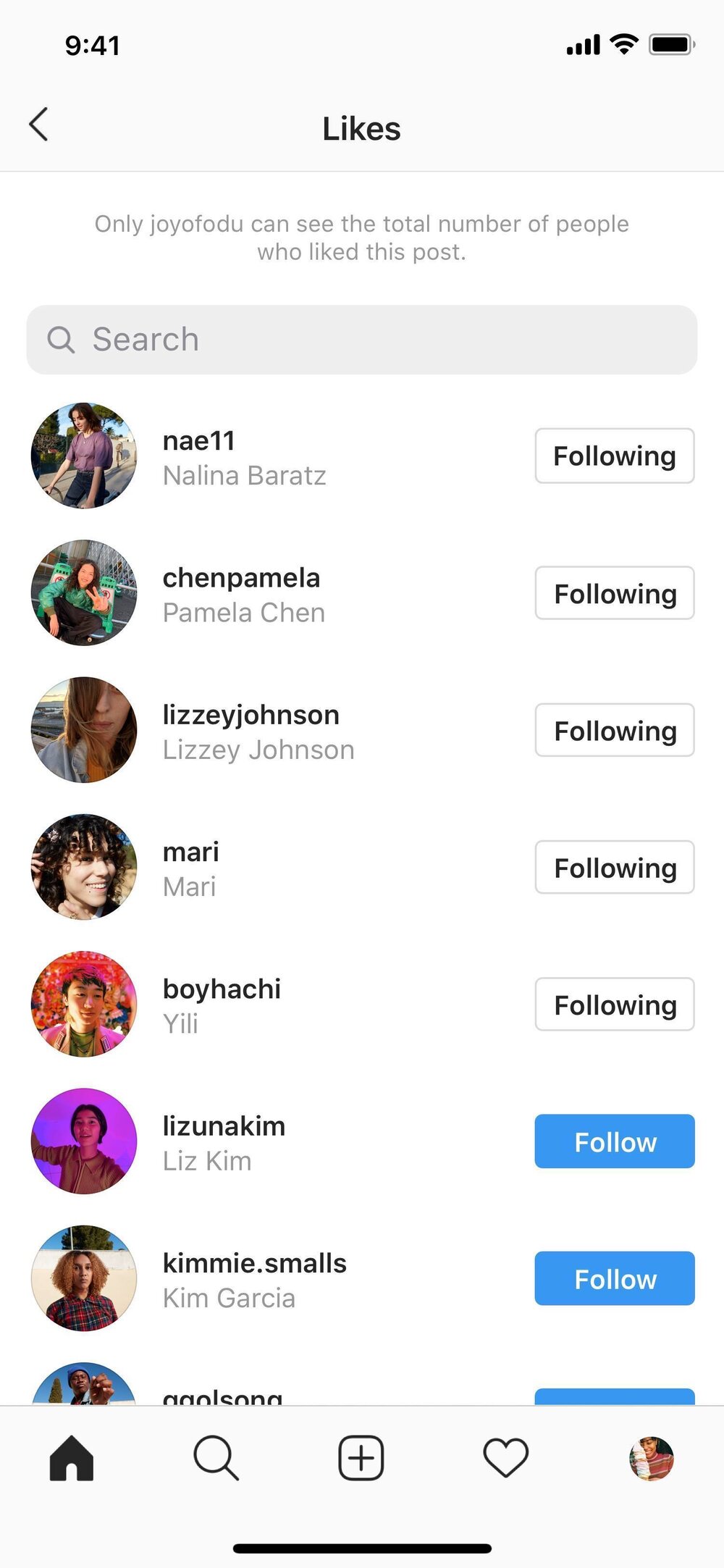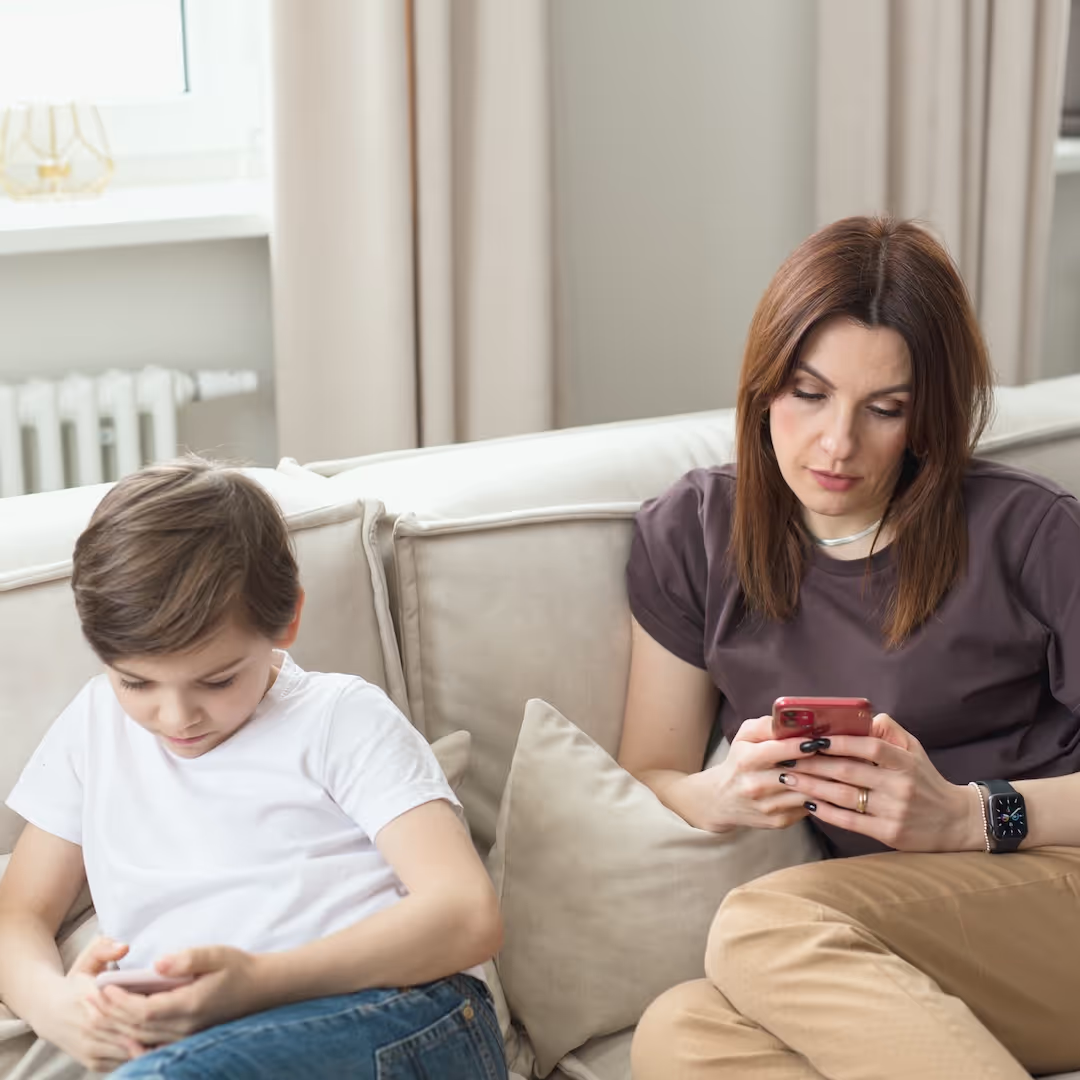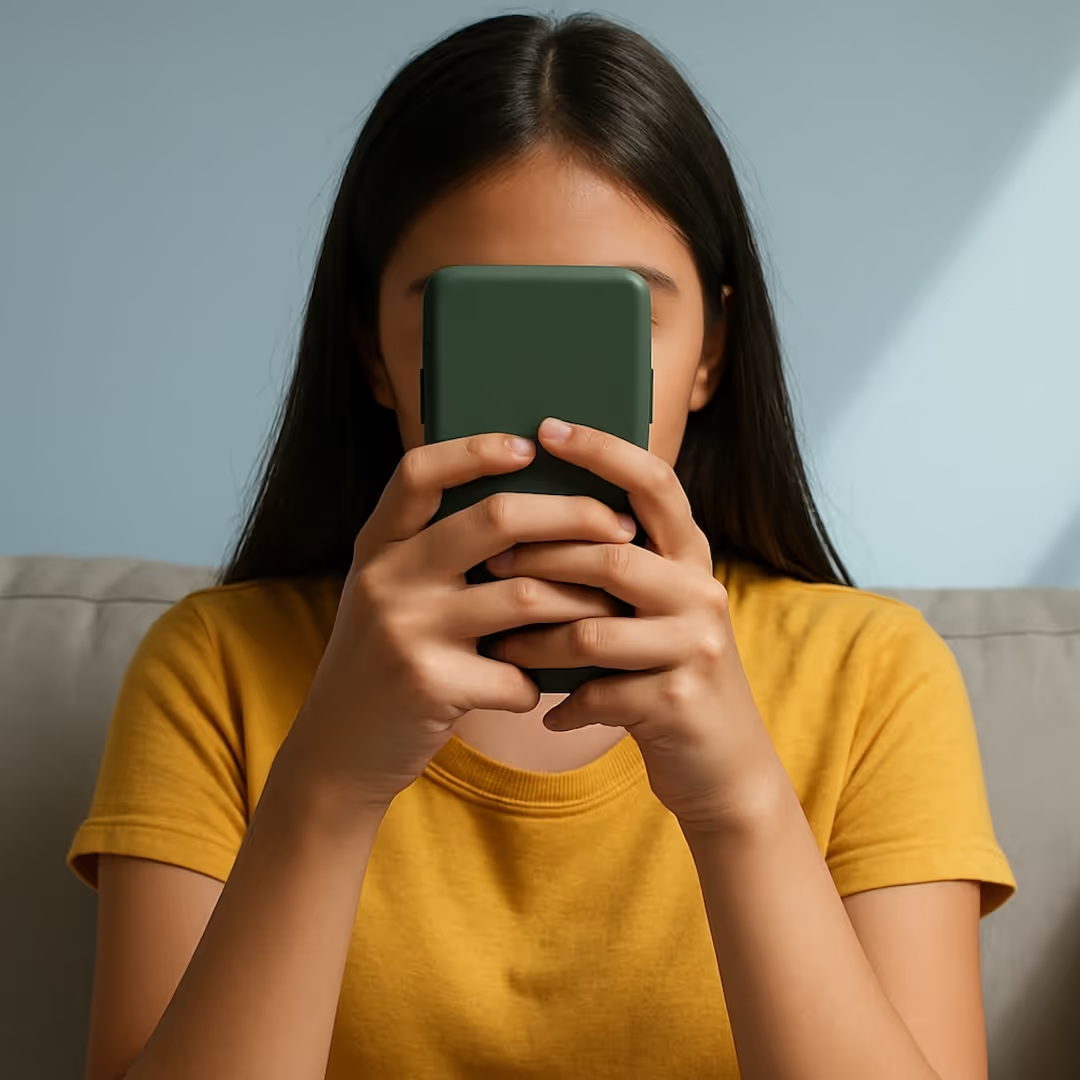


Thanksgiving evening I was sitting around with family in Berkeley as we cooked and talked. Phil, my cousin-in-law, all of a sudden said, “Hey, I just got this message” and he showed his phone to us. It said that when he posts things on Instagram, people could still give it a like, but people would only see that the post got a like, it would not show how many likes it got.
The amazing thing is that all posts in his feeds, his posts and everyone else’s, only showed that likes were given to a post, but not the number of likes.
When he opened his post, it still says at the top how many likes it had, but only he could do that.

My eyes immediately lit up. I knew and had written about how Instagram was hiding likes in other countries but had not heard about it in the US. It quickly made me think of my son, who during his gap year before college was often talking about how cool it would be to make a social media platform all about fostering positive connections, getting rid of likes and doing other things to promote a more positive social media experience.
Maybe Instagram is really going to do this. Last Spring, the company began hiding likes in several countries including Canada, Brazil, Australia, Ireland, Italy, Japan, and New Zealand. This month, they brought the disappearing likes to a small number of US users, including Phil.
“Our interest in hiding likes really is just to depressurize Instagram for young people,” Instagram CEO Adam Mosseri said in Business Insider earlier this month.
“It all comes down to making Instagram a safe and healthy place to spend time online, which is important for everyone’s mental health, but particularly Gen Z,” Mark Zuckerberg, CEO of Facebook, Instagram’s parent company, said at F8 earlier this year. “We want people to be less interested in how many likes a post gets, and focus more on connecting with other people.”
You will still be able to see likes on your posts just not everyone else’s, eliminating the “is theirs better than mine” comparisons that happen.
Right now, this is being tested with select groups with plans to roll out to more. That is why my cousin-in-law Phil had his Instagram changed. He was not asked beforehand and he could not have asked for it. It is random (or not random) who knows, but it was done all of a sudden on his account. He is indeed a beta tester now.
Many celebrity influencers responded positively to the change. Cardi B said removing likes is a step in the right direction but added that the comments section is often more damaging than the number of likes. “This is just my opinion… I mean what makes you feel more insecure getting no likes or people constantly giving opinions about you, your life, your topics?” she said in an early November post.
Kim Kardashian West agrees that taking away Instagram likes could be beneficial for our mental health. Attending the New York Times‘ DealBook Conference, Kim said: “As far as mental health, I think taking the likes away and taking that aspect away from [Instagram] would be really beneficial for people. I find myself to be extremely mentally strong and I have people who are obsessed with the comments, and I find that to be really unhealthy.”
“While the feedback from early testing has been positive, this is a fundamental change to Instagram,” Instagram’s PR department said to us in an email. “We’re continuing our test to learn more from our global community.” They told us that Facebook is also testing hiding likes on a smaller scale.
For this Tech Talk Tuesday, talk to your kids and teenagers about this. See if likes, or the lack thereof, truly matter to them. Or, are the comments where they feel the emotional hits?
If you want to host a screening of the movie in your community, please fill out this form.
Take a look here to see if there’s a screening near you.
*We would love for you to share this TTT any way that works for you, whether that’s on social media or via a newsletter. If you want to send it out in your newsletter we just ask that you credit us and link to our website, and let us know at lisa@screenagersmovie.com.
Stay in touch with the Screenagers community on Facebook, Twitter and leave comments below.
Learn more about showing our movies in your school or community!
Join Screenagers filmmaker Delaney Ruston MD for our latest Podcast

Learn more about our Screen-Free Sleep campaign at the website!
Our movie made for parents and educators of younger kids
Learn more about showing our movies in your school or community!
Learn more about showing our movies in your school or community!
Join Screenagers filmmaker Delaney Ruston MD for our latest Podcast

Learn more about our Screen-Free Sleep campaign at the website!
Our movie made for parents and educators of younger kids
Join Screenagers filmmaker Delaney Ruston MD for our latest Podcast
As we’re about to celebrate 10 years of Screenagers, we want to hear what’s been most helpful and what you’d like to see next.
Please click here to share your thoughts with us in our community survey. It only takes 5–10 minutes, and everyone who completes it will be entered to win one of five $50 Amazon vouchers.
Thanksgiving evening I was sitting around with family in Berkeley as we cooked and talked. Phil, my cousin-in-law, all of a sudden said, “Hey, I just got this message” and he showed his phone to us. It said that when he posts things on Instagram, people could still give it a like, but people would only see that the post got a like, it would not show how many likes it got.
The amazing thing is that all posts in his feeds, his posts and everyone else’s, only showed that likes were given to a post, but not the number of likes.
When he opened his post, it still says at the top how many likes it had, but only he could do that.

My eyes immediately lit up. I knew and had written about how Instagram was hiding likes in other countries but had not heard about it in the US. It quickly made me think of my son, who during his gap year before college was often talking about how cool it would be to make a social media platform all about fostering positive connections, getting rid of likes and doing other things to promote a more positive social media experience.
Maybe Instagram is really going to do this. Last Spring, the company began hiding likes in several countries including Canada, Brazil, Australia, Ireland, Italy, Japan, and New Zealand. This month, they brought the disappearing likes to a small number of US users, including Phil.
“Our interest in hiding likes really is just to depressurize Instagram for young people,” Instagram CEO Adam Mosseri said in Business Insider earlier this month.
“It all comes down to making Instagram a safe and healthy place to spend time online, which is important for everyone’s mental health, but particularly Gen Z,” Mark Zuckerberg, CEO of Facebook, Instagram’s parent company, said at F8 earlier this year. “We want people to be less interested in how many likes a post gets, and focus more on connecting with other people.”
You will still be able to see likes on your posts just not everyone else’s, eliminating the “is theirs better than mine” comparisons that happen.
Right now, this is being tested with select groups with plans to roll out to more. That is why my cousin-in-law Phil had his Instagram changed. He was not asked beforehand and he could not have asked for it. It is random (or not random) who knows, but it was done all of a sudden on his account. He is indeed a beta tester now.
Many celebrity influencers responded positively to the change. Cardi B said removing likes is a step in the right direction but added that the comments section is often more damaging than the number of likes. “This is just my opinion… I mean what makes you feel more insecure getting no likes or people constantly giving opinions about you, your life, your topics?” she said in an early November post.
Kim Kardashian West agrees that taking away Instagram likes could be beneficial for our mental health. Attending the New York Times‘ DealBook Conference, Kim said: “As far as mental health, I think taking the likes away and taking that aspect away from [Instagram] would be really beneficial for people. I find myself to be extremely mentally strong and I have people who are obsessed with the comments, and I find that to be really unhealthy.”
“While the feedback from early testing has been positive, this is a fundamental change to Instagram,” Instagram’s PR department said to us in an email. “We’re continuing our test to learn more from our global community.” They told us that Facebook is also testing hiding likes on a smaller scale.
For this Tech Talk Tuesday, talk to your kids and teenagers about this. See if likes, or the lack thereof, truly matter to them. Or, are the comments where they feel the emotional hits?
If you want to host a screening of the movie in your community, please fill out this form.
Take a look here to see if there’s a screening near you.
*We would love for you to share this TTT any way that works for you, whether that’s on social media or via a newsletter. If you want to send it out in your newsletter we just ask that you credit us and link to our website, and let us know at lisa@screenagersmovie.com.
Stay in touch with the Screenagers community on Facebook, Twitter and leave comments below.
Sign up here to receive the weekly Tech Talk Tuesdays newsletter from Screenagers filmmaker Delaney Ruston MD.
We respect your privacy.
Thanksgiving evening I was sitting around with family in Berkeley as we cooked and talked. Phil, my cousin-in-law, all of a sudden said, “Hey, I just got this message” and he showed his phone to us. It said that when he posts things on Instagram, people could still give it a like, but people would only see that the post got a like, it would not show how many likes it got.
The amazing thing is that all posts in his feeds, his posts and everyone else’s, only showed that likes were given to a post, but not the number of likes.
When he opened his post, it still says at the top how many likes it had, but only he could do that.

My eyes immediately lit up. I knew and had written about how Instagram was hiding likes in other countries but had not heard about it in the US. It quickly made me think of my son, who during his gap year before college was often talking about how cool it would be to make a social media platform all about fostering positive connections, getting rid of likes and doing other things to promote a more positive social media experience.
Maybe Instagram is really going to do this. Last Spring, the company began hiding likes in several countries including Canada, Brazil, Australia, Ireland, Italy, Japan, and New Zealand. This month, they brought the disappearing likes to a small number of US users, including Phil.
“Our interest in hiding likes really is just to depressurize Instagram for young people,” Instagram CEO Adam Mosseri said in Business Insider earlier this month.
“It all comes down to making Instagram a safe and healthy place to spend time online, which is important for everyone’s mental health, but particularly Gen Z,” Mark Zuckerberg, CEO of Facebook, Instagram’s parent company, said at F8 earlier this year. “We want people to be less interested in how many likes a post gets, and focus more on connecting with other people.”
You will still be able to see likes on your posts just not everyone else’s, eliminating the “is theirs better than mine” comparisons that happen.
Right now, this is being tested with select groups with plans to roll out to more. That is why my cousin-in-law Phil had his Instagram changed. He was not asked beforehand and he could not have asked for it. It is random (or not random) who knows, but it was done all of a sudden on his account. He is indeed a beta tester now.
Many celebrity influencers responded positively to the change. Cardi B said removing likes is a step in the right direction but added that the comments section is often more damaging than the number of likes. “This is just my opinion… I mean what makes you feel more insecure getting no likes or people constantly giving opinions about you, your life, your topics?” she said in an early November post.
Kim Kardashian West agrees that taking away Instagram likes could be beneficial for our mental health. Attending the New York Times‘ DealBook Conference, Kim said: “As far as mental health, I think taking the likes away and taking that aspect away from [Instagram] would be really beneficial for people. I find myself to be extremely mentally strong and I have people who are obsessed with the comments, and I find that to be really unhealthy.”
“While the feedback from early testing has been positive, this is a fundamental change to Instagram,” Instagram’s PR department said to us in an email. “We’re continuing our test to learn more from our global community.” They told us that Facebook is also testing hiding likes on a smaller scale.
For this Tech Talk Tuesday, talk to your kids and teenagers about this. See if likes, or the lack thereof, truly matter to them. Or, are the comments where they feel the emotional hits?
If you want to host a screening of the movie in your community, please fill out this form.
Take a look here to see if there’s a screening near you.
*We would love for you to share this TTT any way that works for you, whether that’s on social media or via a newsletter. If you want to send it out in your newsletter we just ask that you credit us and link to our website, and let us know at lisa@screenagersmovie.com.
Stay in touch with the Screenagers community on Facebook, Twitter and leave comments below.

It feels like we’re finally hitting a tipping point. The harms from social media in young people’s lives have been building for far too long, and bold solutions can’t wait any longer. That’s why what just happened in Australia is extremely exciting. Their new nationwide move marks one of the biggest attempts yet to protect kids online. And as we released a new podcast episode yesterday featuring a mother who lost her 14-year-old son after a tragic connection made through social media, I couldn’t help but think: this is exactly the kind of real-world action families have been desperate for. In today’s blog, I share five key things to understand about what Australia is doing because it’s big, it’s controversial, and it might just spark global change.
READ MORE >
I hear from so many parents who feel conflicted about their own phone habits when it comes to modeling healthy use for their kids. They’ll say, “I tell my kids to get off their screens, but then I’m on mine all the time.” Today I introduce two moms who are taking on my One Small Change Challenge and share how you can try it too.
READ MORE >
This week’s blog explores how influencers and social media promoting so-called “Healthy” ideals — from food rules to fitness fads — can quietly lead young people toward disordered eating. Featuring insights from Dr. Jennifer Gaudiani, a leading expert on eating disorders, we unpack how to spot harmful messages and start honest conversations with kids about wellness, body image, and what “healthy” really means.
READ MORE >for more like this, DR. DELANEY RUSTON'S NEW BOOK, PARENTING IN THE SCREEN AGE, IS THE DEFINITIVE GUIDE FOR TODAY’S PARENTS. WITH INSIGHTS ON SCREEN TIME FROM RESEARCHERS, INPUT FROM KIDS & TEENS, THIS BOOK IS PACKED WITH SOLUTIONS FOR HOW TO START AND SUSTAIN PRODUCTIVE FAMILY TALKS ABOUT TECHNOLOGY AND IT’S IMPACT ON OUR MENTAL WELLBEING.
